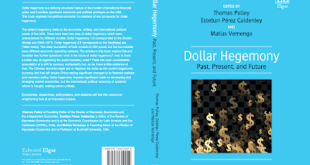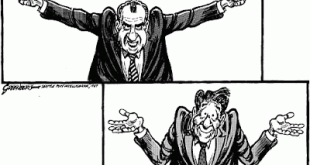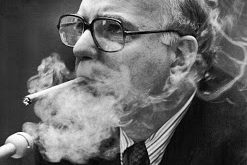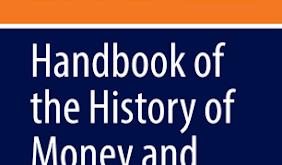[embedded content] Carlos Pinkusfeld interviews Ramaa Vausdevan (Colorado State University) and Franklin Serrano (Federal University of Rio de Janeiro) to discuss the complex challenges of monetary policy in the international arena. Exploring issues such as financial globalization, the influence of large economies on the global monetary system, and the implications for developing countries, the experts offer important perspectives on the role of central banks and the effectiveness of...
Read More »Dollar dominance and the international monetary hierarchy
[embedded content] Our panel at the UNICAMP conference last Thursday, with Mark Schwartz, and Andrés Arauz.
Read More »Dollar Hegemony and Argentina
[embedded content] First part of a two part interview with Anita Fuentes at Security in Context. The discussion on Argentina and Milei is in the next part. I'll post it as soon as it is up.
Read More »Dollar Hegemony, coming soon
The dollar's hegemony rests on the economic, military, and international political power of the USA. There have been two eras of dollar hegemony which were characterized by different models. Dollar hegemony 1.0 corresponded to the Bretton Woods era (1946-1971). Dollar hegemony 2.0 corresponds to the Neoliberal era (1980-today). The deep foundation of both models is USA power, but the two models have different economic operating systems. The articles in this book explore this and consider two...
Read More »The End of Bretton Woods
[embedded content] End of Bretton Woods with Barry Eichengreen, myself and Lilia Costabile, organized by L-P. Rochon and the Review of Political Economy.
Read More »The Consolidation of Dollar Hegemony after the Collapse of Bretton Woods: Bringing power back in
Collapse, ma non troppo!New IDEAS Working Paper on the alternative views of the collapse of Bretton Woods. From the abstract:Contrary to conventional views which suggest that the collapse of Bretton Woods represented the beginning of the end of the global hegemonic position of the dollar, the collapse of the system liberated American policy from convertibility to gold, and imposed a global fiat system still dominated by the floating dollar. The end of Bretton Woods and the set of regulations...
Read More »Paul Volcker’s legacy
Paul Adolph Volcker (1927-2019) Paul Volcker has passed away, and many obits (NYTimes here) and blog posts will be published in the next couple of days. Most likely, the majority will suggest how Carter appointed him to bring down inflation, a courageous decision, that might have costed him the election, and how Volcker went on to stabilize the so-called Great Inflation. Volcker was the head of the New York Fed from 1975 to 1979, before he was appointed chairman of the Fed in that...
Read More »Handbook of the History of Money and Currency
The Handbook (subscription required) has been edited by Stefano Battilossi, Youssef Cassis and Kazuhiko Yago. It has many interesting chapters. Barry Eichengreen writes on what determines that a currency is used as an international currency (or even as the predominant currency). While he follows conventional views in suggesting that role of money as a means of exchange and the importance of the country in international transactions, he does also explore the role of power (military power)...
Read More »‘In Gold We Trust’: Waning confidence in US sends world’s central banks on buying spree — Darius Shahtahmasebi
I think this is partly correct. Probably more significant is the weaponizing of the USD in the economic aspect of hybrid warfare that the US is now carrying out against a number of countries a d sending a message that "you are either with us or against us" (ht G. W. Bush). Wars run two ways.Historically, gold has been the most secure reserve asset — the ultimate in safety, if one can protect one's gold holdings. Powerful nations are betting that they can do do in the event of loss of trust...
Read More »PEPE ESCOBAR: The Unipolar Moment is Over
The most important is a bombshell: a commitment to develop bilateral trade and cross-border payments using the ruble and the yuan, bypassing the U.S. dollar. This implies that the USD will play no role in Eurasian integration. Consortium NewsPEPE ESCOBAR: The Unipolar Moment is OverPepe Escobar
Read More » Heterodox
Heterodox




